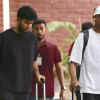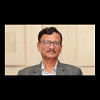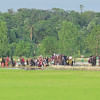India stands by Bangladesh
India stands by Bangladesh in diplomatic and humanitarian ways for addressing the Rohingya crisis, Indian High Commissioner to Bangladesh Harsh Vardhan Shringla said yesterday.
Expressing concern over the violence in Myanmar's Rakhine State and the subsequent influx of some 480,000 Rohingyas since August 25, he said, "We are fully supportive of Bangladesh ... we will continue to stand beside Bangladesh in diplomatic and humanitarian ways."
Shringla was addressing a Memorandum of Understanding signing ceremony between Diabetic Association of Bangladesh (BADAS) and Diabetes Awareness & YOU of Kolkata for Diabetes Education Programme at Birdem Hospital in the city.
He said India already sent relief materials for the Rohingyas in Cox's Bazar and more were on the way.
Noting that a large number of the Rohingyas were women and children and that many of them are affected by various diseases, the Indian diplomat said he requested the Indian hospitals to send doctors for providing the Rohingyas emergency healthcare.
Shringla described the present relations between Bangladesh and India as "golden chapter" and "beyond strategic relations".
He mentioned that Indian External Affairs Minister Sushma Swaraj was scheduled to visit Bangladesh on October 23-24.
During a visit to Myanmar earlier this month, Indian Prime Minister Narendra Modi told Myanmar's de facto leader Aung San Suu Kyi that India was beside her country. He did not mention the persecution of the minority Rohingya Muslim community.
On September 14, Swaraj expressed India's full support for Bangladesh's stance over the Rohingya issue.
At the MoU signing ceremony yesterday, Foreign Minister AH Mahmood Ali termed the current refugee crisis “a real mess” and said: “The longer they [Rohingyas] will stay here, the more the problems will be.”
Bangladesh has sought global support in resolving the Rohingya crisis and hopes that "something will come out of it. [We] hope Rohingyas will be able to return home."
Mahmood also appreciated the cooperation between BADAS and Indian non-profit organisation Diabetes Awareness & YOU to train doctors on diabetes in West Bengal, Bangladesh and in the north-eastern states of India, including Assam and Tripura.
BADAS Secretary General Sayef Uddin said it had trained nearly 12,000 doctors in Bangladesh and wanted to train doctors in India.
He said diabetes is a growing concern all across the globe, and mostly in the developing world. Around six crore people in India and nine crore in China and about 25-30 percent people in the Middle East suffer from diabetes, he said. Interestingly, almost half of those with diabetes go undiagnosed.
"If we can train more doctors, get closer to people, we can better help them," said Sayef.
According to the World Health Organisation, around 10 million diabetic patients are in Bangladesh.
Diabetes Awareness & YOU President Debasis Basu said they wanted to conduct training for the doctors as well as research on diabetes, which he termed a "silent, invisible killer".
He also thanked Novo Nordisk India for collaborating with BADAS and Diabetes Awareness & YOU in the education programme for the doctors.

 For all latest news, follow The Daily Star's Google News channel.
For all latest news, follow The Daily Star's Google News channel. 








Comments